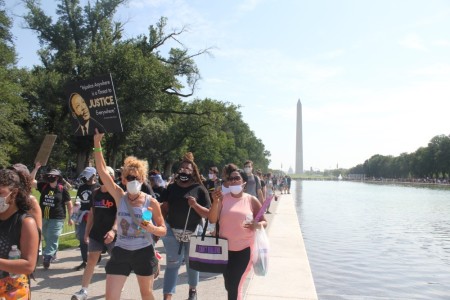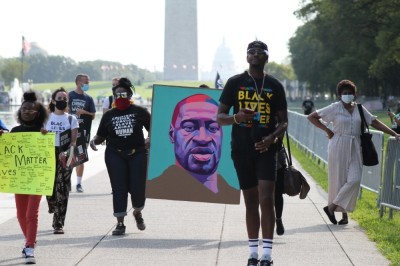White US Christians becoming less motivated to address racial injustice: Barna

White, self-identified Christians in the United States have become less motivated to address racial injustice and are less likely to believe that the country has a race problem compared to last year, according to a new report by the Barna Group.
In findings made public on Tuesday, Barna reported that 33% of white self-identified Christians believe that the United States “definitely” has a race problem, down from 40% last year.
By contrast, 81% of black self-identified Christians agreed that the nation “definitely” has a race problem, up from 75% in 2019. Hispanic self-identified Christians stayed about the same, with 54% responding “definitely” in 2019 and 55% responding the same in 2020.
Barna also found that from 2019-2020, the number of white self-identified Christians who felt “very motivated” to address racial injustice dropped from 14% to 10%.
White self-identified Christians who were “motivated” to address racial injustice also declined from 18% in 2019 to 15% in 2020, with those “not at all motivated” rising from 11% in 2019 to 22% in 2020.
In contrast, from 2019-2020, the number of black self-identified Christians who were “very motivated” to address racial injustice rose from 33% in 2019 to 46% in 2020.
Despite the decrease in motivation to address racial injustice and a drop in the belief that the nation has a race problem, Barna did find an increase in belief among white self-identified Christians that the United States has historically been oppressive to minorities.
White self-identified Christians who agreed with that sentiment increased from 43% in 2019 to 48% in 2020, while those who disagreed dropped from 30% last year to 23% this year.
For the report, Barna surveyed 1,525 U.S. adults online from June 18-July 6, over-sampling African Americans, Asians, and Hispanics. The data has a margin of error of plus or minus 1.8%.

Barna also found a decline in the belief that the U.S. has a race problem among the entire U.S. adults sample, with 46% agreeing in 2020, versus 49% in 2019.
Further, the number of U.S. adults in general who responded that they were “not at all motivated” to address racial injustice grew from 9% last year to 16% this year.
The research was conducted not long after Barna President David Kinnaman penned a blog entry calling for action regarding the divergent views on race between white and black evangelicals.
“Simply put, most white Christians miss and misunderstand the lived experience of Black Christians. We’ve been tracking this gap for years, including the higher degree to which Black Christians perceive police brutality, experience the effects of racism and believe the effects of slavery continue to this day,” wrote Kinnaman.
“It is the Church’s responsibility to reject racism, embrace responsibility to tear down unjust and white-centered systems and, in the Spirit’s power, advance justice and reconciliation.”
The United States has experienced renewed internal conflict over race and racial reconciliation following the killing of George Floyd by police in Minneapolis, Minnesota, back in May.
This has included protests, both violent and peaceful, as well as increased dialogue within churches over the existence of systemic racism in both sacred and secular institutions.
New protests occurred after a black man named Jacob Blake was shot seven times in the back by police in Kenosha, Wisconsin, last month.
Earlier this year, polls indicted a growing support for the “Black Lives Matter” movement, with a Pew Research Center report finding that about two-thirds of all Americans were in favor.
However, a new Politico-Morning Consult poll from Wednesday found support for the BLM movement drop by nine points to a 52% favorable opinion among voters compared to June.
The PMC poll also found that while 57% of respondents supported the Floyd protests earlier this year, 49% of respondents recently voiced support for the Blake protests.





















